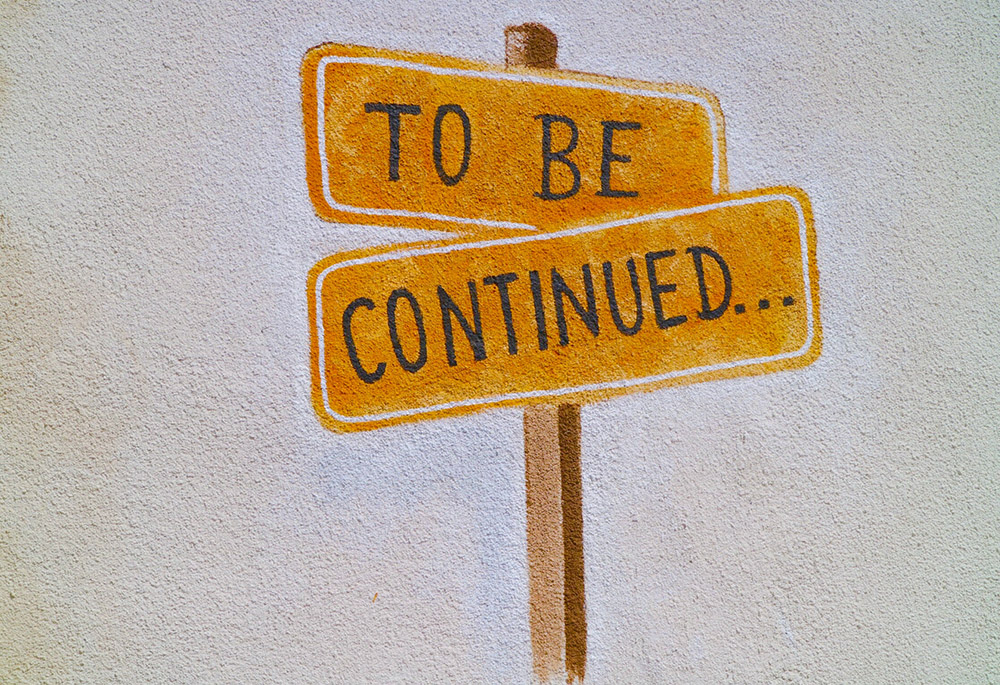
(Unsplash/Etienne Girardet)
Storytelling is trendy. You can buy any number of books to discover how to tell better stories that build your brand, attract new donors and inspire legions of volunteers. Believe me — I have. A lot of those books are pretty good.
Still, lost in that storytelling aisle of the local bookstore we might miss an important truth: Storytelling is a spiritual practice — and one that can deepen our faith in ourselves, our community and our God.
How? Here are five mantras worth repeating to help you cultivate a spirituality of storytelling and deepen your own awareness of the importance of the stories that make up your life.
1. I have a story worth sharing.
I've worked with a number of a retreat leaders. Every so often, just before they are about to give a talk about their lives to a room full of retreatants, they panic. "I don't have a story worth sharing. Mine doesn't compare." They have in mind stories of loss and heartache and triumph over hardship and, by comparison, they see something lacking in their own tale.
Fortunately, storytelling isn't an exercise in comparison. Our stories are worth sharing not because they are better or worse than another story but because they demonstrate our own efforts to grapple with the highs and lows of life, in all that is mundane and epic.
You do that, right? You deal with life. Mining your experiences for those actions big and small reveal something of your character — and something of how God is at work in your life.
That's worth sharing.
2. My story is utterly unique.
The building blocks of my life appear rather ordinary: a wife, two kids, a cat, a house, a job. The list goes on. Those building blocks might be reflected in your own life story; you, too, might shrug at what you see and say, "I'm a dime a dozen."
I say that to myself with some frequency. So, let's dig deeper. What appears unextraordinary on the surface might conceal a whole universe of wonder and experience.
My wife encouraged us to get a hedgehog; my daughters are named after strong women in our family; my cat greets us at the door. Silly examples perhaps, but the more we scratch the surface, the more we see the distinctiveness of our life stories and in so doing, we glimpse our unique ability to contribute something new to the world.
Something only we can do.
Advertisement
3. My story is still unfolding.
We rarely read books or watch movies about characters in the act of living happily ever after. There's no tension in that. Look at the Marvel Cinematic Universe: Our heroes die in epic fashion (Iron Man), retire quietly and fade from view (Captain America) or keep getting dragged back into some new conflict (Thor).
I really don't think we're going to get another season of "Hawkeye" where we watch Clint Barton raising his kids on the family farm.
But that's not how the story of our lives is told. There are epic, glorious, intense moments, sure; but we also get those quiet, simple, everyday moments, too. The camera, so to speak, never stops rolling.
That means every moment is pregnant with possibility: the loud, the quiet, the happy and the sad. We might assume our story is nearly finished, but as long as we're drawing breath, there's something more to come.
Do we have eyes and faith to see and embrace the potential?

(Unsplash/Reuben Juarez)
4. I am a character in the stories of others.
I might be the main character in the story of my life, but I'm little more than supporting cast in the stories of others. And that's all right.
The very nature of my day — and your day, too, I'll bet — brings me into one collision after another with different people: members of my family, colleagues, neighbors and more. My story thread becomes tangled up in the web of stories that is all of creation, our human family.
In these moments, we have the opportunity to share our unique stories with others, to invite them in to the ongoing story of our lives and to listen to their stories in return.
And while I'd love to imagine myself as the Gandalf of someone else's story, I'm much more likely one of those confused-looking hobbits Bilbo runs by as he sprints through the Shire, determined to catch up with the company of dwarves. That's OK.
We all have different roles to play in one another's stories.
5. My story is full of grace.
St. Ignatius of Loyola believed that God is in all things, that all of creation is dripping with grace. In the spiritual exercises, Ignatius encouraged spiritual directors to get out of the way of God and the one making the retreat.
What does that mean? It means that Ignatius knew God continues to act in our stories. We're made in the image and likeness of God, sure, but God doesn't stop there.
What makes my story unique and worth sharing finds its source in this God who continues to act in and through the story of my life. And if that's the case, then that same truth applies to every person's story.
That's a statement of faith that demands action: sharing, listening to, and protecting the stories that make up our shared world.





